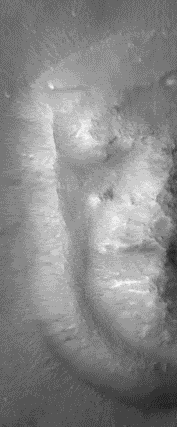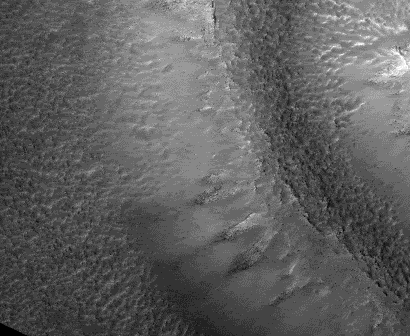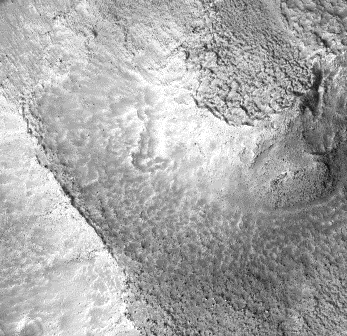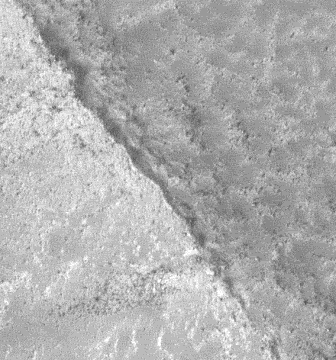- Thank you received: 0
NASA, I'm ready for my close-up
18 years 2 weeks ago #16813
by Gregg
Replied by Gregg on topic Reply from Gregg Wilson
This subject is so far outside of my competence, that all I can do is sit in the peanut gallery and cheer you on.
Gregg Wilson
Gregg Wilson
Please Log in or Create an account to join the conversation.
- neilderosa
-
Topic Author
- Offline
- Platinum Member
-

Less
More
- Thank you received: 0
18 years 2 weeks ago #19437
by neilderosa
Replied by neilderosa on topic Reply from Neil DeRosa
"This subject is so far outside of my competence, that all I can do is sit in the peanut gallery and cheer you on. [Gregg]"
I appreciate that. I'll finish posting all of my detail pics first and then explain what I'm getting at. As a preview...mostly I'm looking for construction signs; "brushstrokes," as it were.
Neil
I appreciate that. I'll finish posting all of my detail pics first and then explain what I'm getting at. As a preview...mostly I'm looking for construction signs; "brushstrokes," as it were.
Neil
Please Log in or Create an account to join the conversation.
- neilderosa
-
Topic Author
- Offline
- Platinum Member
-

Less
More
- Thank you received: 0
18 years 2 weeks ago #19697
by neilderosa
Replied by neilderosa on topic Reply from Neil DeRosa
To continue the project of recording detail from the MRO Cydonia face…
15- West half of face straight up (i.e., not map projected) at 5%.
16- Detail of west chin area 21%
17- Detail of mid-face border with hairline 21%
18- Detail of face border with hairline and headpiece line 21%
19- Close-up of 18 (from map-projected face) 27%
20- Close up of border (from map-projected face) 95%
21- Detail of mid-face showing ding or “dimple” (formerly known as “tear-drop”) 16%
22- close-up of dimple 50%
15- West half of face straight up (i.e., not map projected) at 5%.
16- Detail of west chin area 21%
17- Detail of mid-face border with hairline 21%
18- Detail of face border with hairline and headpiece line 21%
19- Close-up of 18 (from map-projected face) 27%
20- Close up of border (from map-projected face) 95%
21- Detail of mid-face showing ding or “dimple” (formerly known as “tear-drop”) 16%
22- close-up of dimple 50%
Please Log in or Create an account to join the conversation.
18 years 2 weeks ago #16757
by rderosa
Replied by rderosa on topic Reply from Richard DeRosa
The simplest way to show how little any of this means is to show it to someone who has never seen it before. Maybe even 10 people. Their reaction will surely be priceless.
The thing that strikes me most about these new high resolution images is that we are seeing (resolving) objects that are approximately one yard in size, and we still don't see anything at all that is convincingly artificial.
Also, I find it interesting that the "crack" above the west eye, and the "crack" in the east side are not cracks at all, they are rocks and valleys in the landform, and are decidedly NOT metallic in nature as was previously guessed.
Once again, those who believe this thing is artificial will see what they want to see, and those who don't won't. Those that think it's half human half feline will see it that way. Those that think it's Mount Rushmore will see it that way. Those who think it's a pile of rocks will see it that way.
But most importantly, that vast group who see nothing, will continue to see nothing, and never the train shall meet.
To fully appreciate how unconvincing this is, one has to clearly come to grips with just how much we are seeing at this high resolution. We are seeing objects that are one yard long. Like say a truck tire rim. It's easy to forget this and think that there is still more to see, but the reality is that it "is what it is", and it ain't much.
rd
The thing that strikes me most about these new high resolution images is that we are seeing (resolving) objects that are approximately one yard in size, and we still don't see anything at all that is convincingly artificial.
Also, I find it interesting that the "crack" above the west eye, and the "crack" in the east side are not cracks at all, they are rocks and valleys in the landform, and are decidedly NOT metallic in nature as was previously guessed.
Once again, those who believe this thing is artificial will see what they want to see, and those who don't won't. Those that think it's half human half feline will see it that way. Those that think it's Mount Rushmore will see it that way. Those who think it's a pile of rocks will see it that way.
But most importantly, that vast group who see nothing, will continue to see nothing, and never the train shall meet.
To fully appreciate how unconvincing this is, one has to clearly come to grips with just how much we are seeing at this high resolution. We are seeing objects that are one yard long. Like say a truck tire rim. It's easy to forget this and think that there is still more to see, but the reality is that it "is what it is", and it ain't much.
rd
Please Log in or Create an account to join the conversation.
- tvanflandern
-
- Offline
- Platinum Member
-

Less
More
- Thank you received: 0
18 years 2 weeks ago #19698
by tvanflandern
Replied by tvanflandern on topic Reply from Tom Van Flandern
<blockquote id="quote"><font size="2" face="Verdana, Arial, Helvetica" id="quote">quote:<hr height="1" noshade id="quote"><i>Originally posted by rderosa</i>
<br />those who believe this thing is artificial will see what they want to see, and those who don't won't. Those that think it's half human half feline will see it that way. Those that think it's Mount Rushmore will see it that way. Those who think it's a pile of rocks will see it that way. But most importantly, that vast group who see nothing, will continue to see nothing, and never the train shall meet.<hr height="1" noshade id="quote"></blockquote id="quote"></font id="quote">So according to you, the artificial vs. natural question is unanswerable (at least with information in hand), and all opinions (including yours) are based simply on prejudice.
However, the whole point of scientific method is to take that very subjectivity out of the equation so that prejudices cannot influence judgment. And that is why <i>a priori</i> predictions are so important -- because when they are made, no one knows how the predictions will turn out. Yet when the tests are performed, only one hypothesis survives.
If you don't accept the a priori principle in the abstract as a valid way to test hypotheses without prejudice, then you (and many like you) must remain invincible skeptics or invincible believers, probably for life.
If you do accept the principle in the abstract, but think it is being misapplied here, then you should direct your remarks to that issue because no amount of "it looks like..." or "it doesn't look like..." can be objective. Our perceptions are too closely aligned with our beliefs.
But then, we've covered all this before, haven't we? -|Tom|-
<br />those who believe this thing is artificial will see what they want to see, and those who don't won't. Those that think it's half human half feline will see it that way. Those that think it's Mount Rushmore will see it that way. Those who think it's a pile of rocks will see it that way. But most importantly, that vast group who see nothing, will continue to see nothing, and never the train shall meet.<hr height="1" noshade id="quote"></blockquote id="quote"></font id="quote">So according to you, the artificial vs. natural question is unanswerable (at least with information in hand), and all opinions (including yours) are based simply on prejudice.
However, the whole point of scientific method is to take that very subjectivity out of the equation so that prejudices cannot influence judgment. And that is why <i>a priori</i> predictions are so important -- because when they are made, no one knows how the predictions will turn out. Yet when the tests are performed, only one hypothesis survives.
If you don't accept the a priori principle in the abstract as a valid way to test hypotheses without prejudice, then you (and many like you) must remain invincible skeptics or invincible believers, probably for life.
If you do accept the principle in the abstract, but think it is being misapplied here, then you should direct your remarks to that issue because no amount of "it looks like..." or "it doesn't look like..." can be objective. Our perceptions are too closely aligned with our beliefs.
But then, we've covered all this before, haven't we? -|Tom|-
Please Log in or Create an account to join the conversation.
- Zip Monster
-
- Offline
- Premium Member
-

Less
More
- Thank you received: 0
18 years 2 weeks ago #19573
by Zip Monster
Replied by Zip Monster on topic Reply from George
So Neil
you say - “it ain't much”...
Really?
Well as a sculptor I must strongly disagree with your shortsighted and offhanded evaluation of the "plasticity" expressed throughout the surface features of the Face formation found at Cydonia.
It is clear you have no background in the three-dimensional arts or any knowledge of the modeling and tooling techniques utilized with stone carvings.
According to your guidelines the attached image - also "ain't much."
However, as you so cleverly tried to say in your post - "What you see is what you get” and like the Cydonia Face – this Easter Island Head - is more than "just a pile of rock" and I'm sure both formations - sure ain’t natural.
Note the common modeling.
Zip Monster
you say - “it ain't much”...
Really?
Well as a sculptor I must strongly disagree with your shortsighted and offhanded evaluation of the "plasticity" expressed throughout the surface features of the Face formation found at Cydonia.
It is clear you have no background in the three-dimensional arts or any knowledge of the modeling and tooling techniques utilized with stone carvings.
According to your guidelines the attached image - also "ain't much."
However, as you so cleverly tried to say in your post - "What you see is what you get” and like the Cydonia Face – this Easter Island Head - is more than "just a pile of rock" and I'm sure both formations - sure ain’t natural.
Note the common modeling.
Zip Monster
Please Log in or Create an account to join the conversation.
Time to create page: 0.341 seconds









